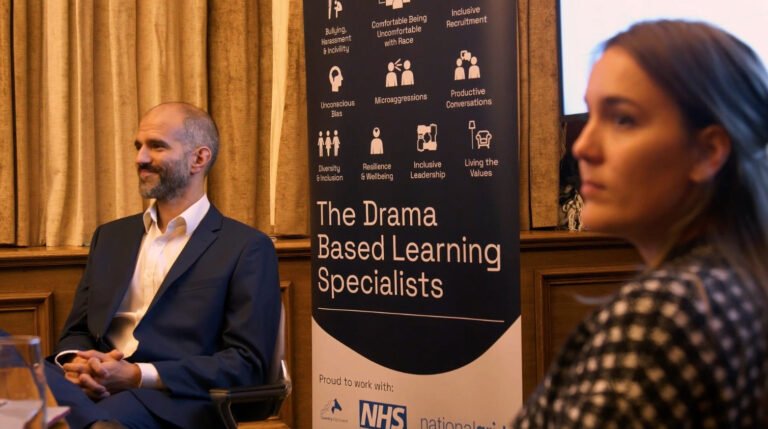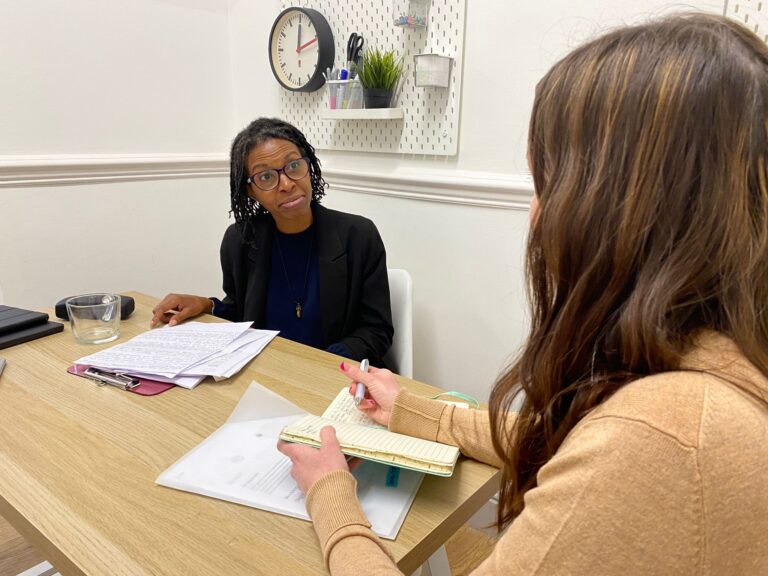
Do you feel that your workplace encourages LGBTQ+ inclusion?
If you want to find out more about what your workplace can do to encourage LGBTQ+ inclusion, then look no further – this blog is for you.
You may have come across the term ‘rainbow washing’ before. If you haven’t, it’s where companies try to look inclusive from the outside but don’t actively implement effective policies and practices into their daily culture. Some examples include companies putting LGBTQ+ employees in marketing materials but not paying them fairly, sticking rainbows on their products during pride month (such as pride-themed sandwiches) but not donating any profits to LGBTQ+ causes or getting employees to take part in pride marches but turning a blind eye to bullying and harassment in the workplace.
Although it is great to see an increase in support for the community, we do have to acknowledge that some companies could be doing much more to create long-lasting change.
Research has shown that many LGBTQ+ employees lead a double life between their work and home life
A study conducted by the charity, Just Like Us, in April 2023, reported that a quarter of young LGBTQ+ individuals in the UK hide their sexuality at work. The research also found that one in five LGBTQ+ young adults had experienced bullying in the workplace. Overall, LGBTQ+ young adults made less than their non-LGBTQ+ counterparts. “24% of LGBT+ young adults make less than £19,999 per year, compared to 16% of non-LGBT+ young adults.” This was particularly apparent with asexual and lesbian young adults.
The Deloitte Global 2023 LGBT+ Inclusion @ Work report which was published earlier this year, also confirms this. They conducted a survey that involved 5,474 LGBT+ employees who work in various sectors over the span of 13 countries. The survey explored the relationship between LGBT+ people and the workplace in relation to their sexual orientation and gender identity. The report looked extensively at “the experiences of LGBT+ people in the workplace, including the steps their employers are taking to further LGBT+ inclusion and the impact this has on them, their levels of comfort in being out at work about their LGBT+ identity, and their experiences of non-inclusive behaviours in the workplace”.
The survey provides a great insight into how LGBT+ employees feel regarding inclusion in the workplace; “LGBT+ employees generally feel the positive impact of their employers demonstrating a commitment to LGBT+ inclusion, yet a little more than four in 10 said that their employers fail to do so either internally or externally”. As this data clearly displays, LBTQ+ employees are faced with different barriers and challenges compared to their heterosexual counterparts. Companies need to identify the specific needs of their LGBTQ+ employees and take action to create a safer and friendlier work environment.
LGBTQ+ in the workplace – questions and solutions
The main thing to keep in mind is that we all can make a positive impact and inspire change. So, what is it exactly that businesses could be doing to tackle the issue of non-inclusivity in the workplace? A good starting point is to think about your department or organisation and ask yourself the questions below.
Does your organisation have non-discrimination policies in place?
LGBTQ+ policies are key to making your colleagues feel safe and comfortable at work. They help to set guidelines for ways in which your company can be more inclusive. This could include anything from pensions to parental leave. If you already have policies in place, consider whether these policies are discussed when training new employees and if they are ingrained into your daily working life. An article by Camille Brouard on LGBTQ+ inclusion stated that “LGBTQ+ inclusion should be a core part of your Equality and Diversity policy; having a separate policy for LGBTQ+ inclusion is an even clearer way to show your commitment to tackling discrimination in this area.” It is important that your company review these policies on a regular basis and make changes where applicable.
Have you experienced or witnessed microaggressions at work?
“Microaggressions are everyday actions and behaviours that have harmful effects on marginalised groups.” – Chester Price
Microaggressions can be intentional or unintentional, verbal or nonverbal. As they are small, they can slip under the radar without people noticing. If an individual is experiencing microaggressions on a regular basis, this can become very draining and debilitating. If you are not attuned to certain microaggressions, it can be difficult to identify them. However, it is important for people to learn about them and the impact they have, as they are a sure sign of inequality and disrespect in the workplace.
The different subgroups of microaggressions are:
- Micro assaults: This is when someone knowingly communicates something that they know is hurtful.
- Micro insults: This is when someone is subtly rude or disrespectful in a way that demeans a person’s identity.
- Micro invalidations: These are actions or behaviours that deny discrimination and discount someone’s lived experiences.
At Enact Solutions, our sessions such as Microaggressions or Equity, Diversity and Inclusion give delegates the chance to learn about inclusivity through interactive and engaging delivery methods. In our recent Microaggressions showcase, three of our actors played triage nurses in an NHS hospital. One of the scenes involved a discussion with colleagues about a recent altercation between a patient and an employee, who is a member of the LGBTQ+ community. This scene exemplified a variety of microaggressions including stereotyping and misgendering. At the end of the scene, delegates were asked to identify the key moments that stood out to them. Delegates openly discussed and identified non-inclusive behaviours which were shown in the scene and sought ways in which they could effectively challenge these behaviours in their own jobs.
Language plays a big part in microaggressions and inclusivity. LGBTQ+ inclusive language involves positive word choices that show acknowledgment and respect for diversity amongst colleagues. Examples of non-inclusive language include using the terms “he/she” in a contract or job description instead of “they/them” or addressing someone’s partner or spouse as “wife” or “boyfriend”. Scenarios where an organisation can improve the use of LGBTQ+ inclusive language include verbal and non-verbal communications such as work meetings, job advertisements, contracts, interviews, policies and emails.
Does your company provide training in LGBTQ+ awareness?
LGBTQ+ awareness should be essential in diversity and equality training. Instead of just having a one-off training session to include these topics, it’s imperative to have regular training programs to promote ongoing inclusive actions. Although it is highly beneficial to have colleagues read over the policies, providing training on the specific policies gives employees the time to fully understand them and learn how to act on them effectively. Thorough and engaging training programs will help avoid the mentality of just “ticking boxes” and will instead reinforce a fair working environment.
Does your organisation promote allyship?
For LGBTQ+ employees to feel less isolated, having a solid support system is crucial. This network can be open to individuals who are a part of the LGBTQ+ community and people who aren’t. This ensures the network is company-wide and demonstrates that everybody can help to make their workplace more inclusive. It also provides a safe space for colleagues who may not be ‘out’ at work to be involved in the group without feeling any pressure to ‘out’ themselves. A productive and effective network will have clear aims of what they are hoping to achieve and will also have support from people at the highest level in the company. With a reliable support network, colleagues can build allyships that; improve levels of happiness, and productivity, provide a sense of belonging in the workplace, and show LGBTQ+ colleagues that they are valued.
It’s on all of us
As individuals and as organisations, we all have a responsibility to improve the work life of our LGBTQ+ colleagues. If we don’t consistently review our training programs, policies and interactions, then our workplace environments can become stagnant. A key component of inclusivity is progression. To progress, it is vital to have clear aims and responsibilities as a business to reduce discriminatory behaviours and develop the necessary skills to navigate discussions around diversity and inclusion.
If you would like to find out more about what we offer at Enact Solutions, take a look at our Enact Learning and Development page on our website, see our upcoming showcases, follow our socials and get in touch.
Zara Huxley
Appendix:
A quarter of LGBT+ young adults go back into the closet after starting work – Just Like Us
LGBT+ Inclusion at Work 2023: A Global Outlook (deloitte.com)
LGBTQ+ inclusion in the workplace: a guide for employers (myhrtoolkit.com)
Microaggressions: Definition, types, and examples (medicalnewstoday.com)



